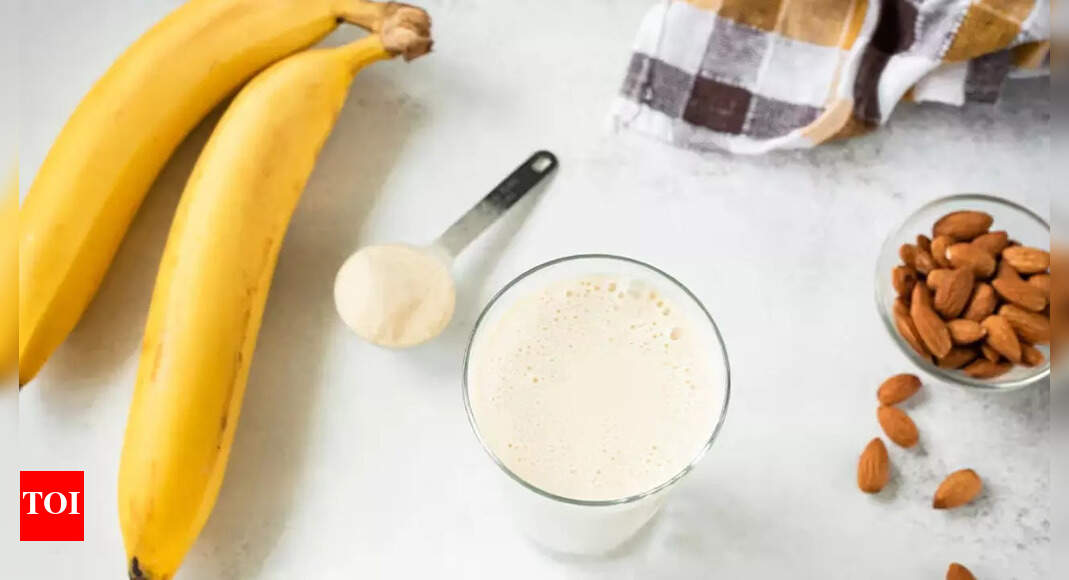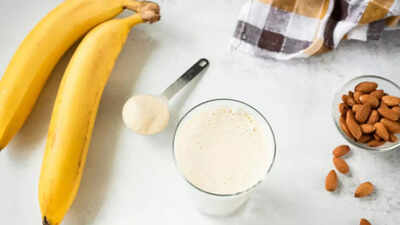[ad_1]
Imagine waking up in the morning and standing right in front of your fridge door, to check whether your fruits and veggies drawer is stacked with that sunshine yellow fruit or not! Yes, we are talking about the bright and versatile fruit that blends seamlessly into almost every kind of meal, whether a smoothie bowl, a plate of waffles, or even a slice of cake!It’s bananas!It’s that one fruit that you go on having almost daily; incorporating into your breakfast routine every single morning—no fuss, no guilt, just a golden curve of convenience!
And as it turns out, this daily banana habit does more than taste sweet; it might jazz up your insides in surprising ways. From waking up your energy engines to calming your tummy, and even nudging your mood to “hello, sunshine!”, bananas could be your breakfast backstage hero. But what’s really going on inside your body when you go bananas every day?
Poll
Have you ever experienced any negative effects from eating bananas?
Morning banana magic
What does that daily dose of banana-munching do? Let’s take a look.

Bright burst of energy (without the crash)
Bananas are loaded with natural carbs and B vitamins (like B6 and B1), delivering a quick, stable boost of energy. Think of it as a gentle nudge awake, not a jolt from sugary caffeine; bananas are like your body’s fast-charging battery. Unlike sugary snacks, their fiber helps slow down sugar absorption, keeping crash landings at bay. So your morning stays packed, sweet, and steady.
Great gut cheerleader
It takes only 3-5 grams of fiber (depending on ripeness) that a banana delivers to help keep your bowels moving and your tummy calm. Unripe bananas add resistant starch, a special type of fiber that fuels your friendly gut bacteria. Think smoother digestion and a happier microbiome! Plus, bananas bring prebiotics to the party, fueling the good bacteria in your gut. They’re even part of the classic BRAT diet (Banana, Rice, Applesauce, Toast) because they’re so tummy-friendly.
Beat the blood pressure (and sugar) blues
Thanks to their high potassium (about 380–420 mg per banana), these yellow powerhouses help flush out extra sodium and relax your blood vessels. Potassium helps manage blood pressure and twitchy muscles and kicks sodium stress to the curb. You’re essentially giving your heart and muscles a real morning pep talk. That means smoother flow and healthier blood pressure levels over time.Moreover, the fiber content in bananas supports blood sugar levels. The body doesn’t fully absorb fiber, so it doesn’t lead to blood sugar spikes the way some carbohydrates do.Because bananas contain both soluble fiber and resistant starch, the combination of these types of fiber can help regulate blood sugar levels after eating.
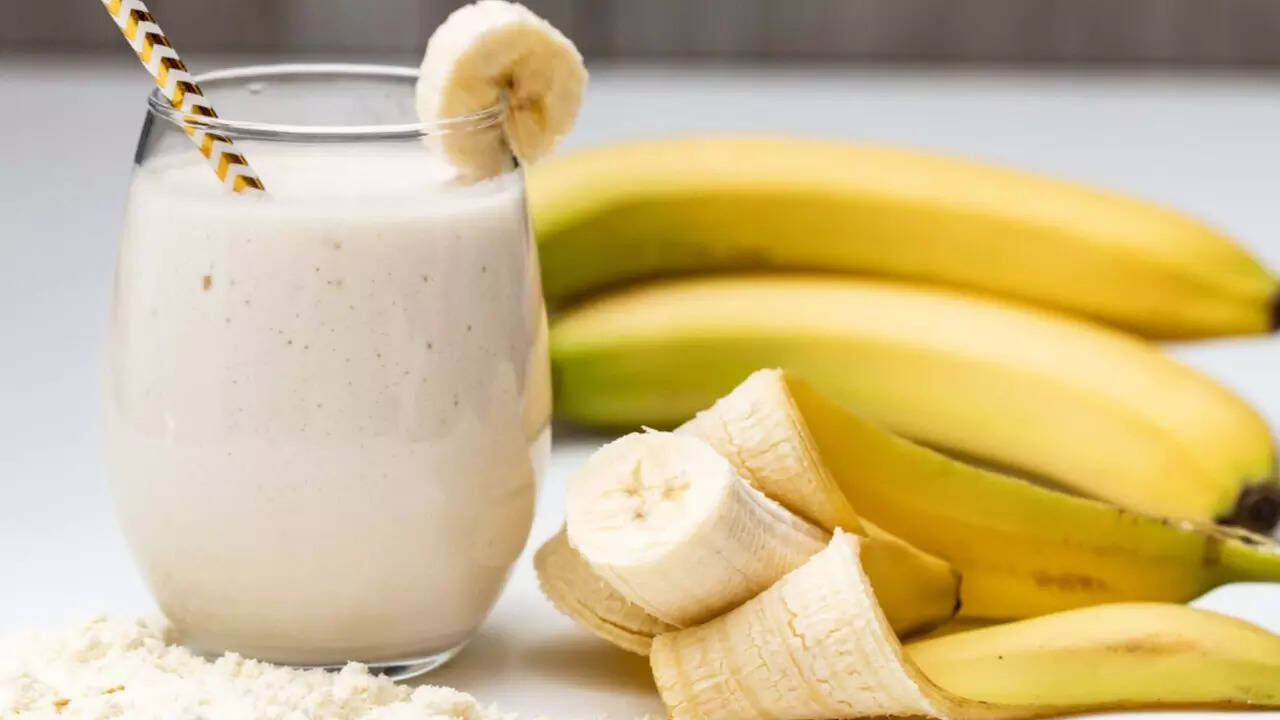
Supercharges the mood-o-meter
Bananas aren’t just a sweet pick-me-up; they’re also mood-enhancers. They host vitamin B6 and tryptophan, precursors to the happy hormones serotonin and dopamine. They might be your stealthy mood boosters, sans the unnecessary sugar high that is harmful in the long run. Research has even shown a potential positive connection between banana consumption and depression symptoms.
Antioxidant knight in sunshiny armor (plus good carbs)
Packed with vitamin C, manganese, and antioxidants, bananas help your body defend itself from daily oxidative stress and support a resilient immune system. On top of that, it’s a great source of good carbs as well. While bananas have natural sugars, pairing them with a protein or fat (like nut butter or yogurt) balances the sugar release, keeping your blood sugar stable and hunger at bay.
Workout buddy and recovery ally
Bananas come to the rescue with electrolytes (potassium and magnesium) to help prevent cramps and aid recovery. Before or after exercise, they offer a refreshing dose of electrolytes and carbs, fueling muscles and hydrating the body. Some studies even compare them favorably to sports drinks for workout energy.
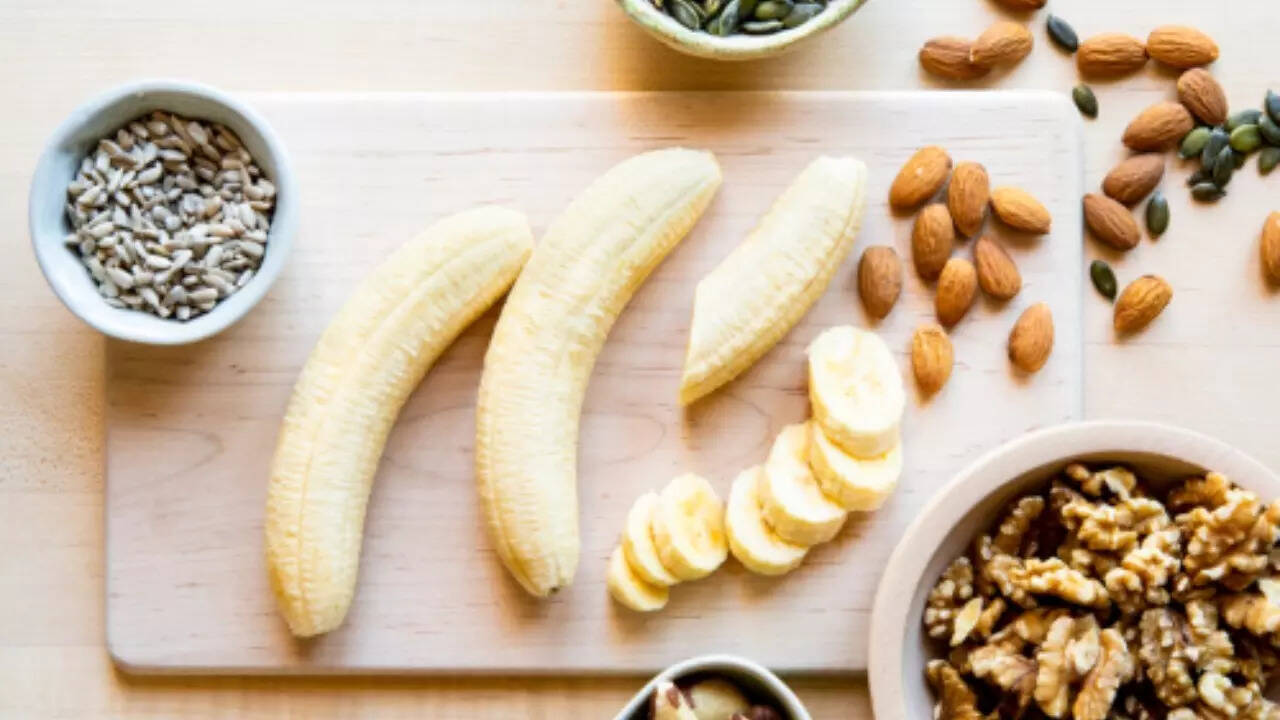
All perks and no cons?
That doesn’t sound real. And be assured, it’s not.Blood sugar blips (for some): Bananas are high in natural sugar, around 27 g, so eating them alone could cause a spike, especially for folks managing diabetes. Pairing with protein or healthy fat helps temper the rise and prevent that sugar rush.Too much potassium? Most people benefit from potassium, but if you have kidney disease or take medications that affect potassium levels, a daily banana might add extra burden. So, it’s better to keep an eye on potassium intake to avoid hyperkalemia (a condition where there’s too much potassium in the blood).Migraines or IBS warning: Bananas rich in tyramine can trigger migraines in some people, and those with IBS may struggle with high-FODMAP foods like ripe bananas. If you’re sensitive to tyramine (often higher in ripe fruit), a brown-spotted banana might trigger a headache. Stick with less ripe if that’s your case.
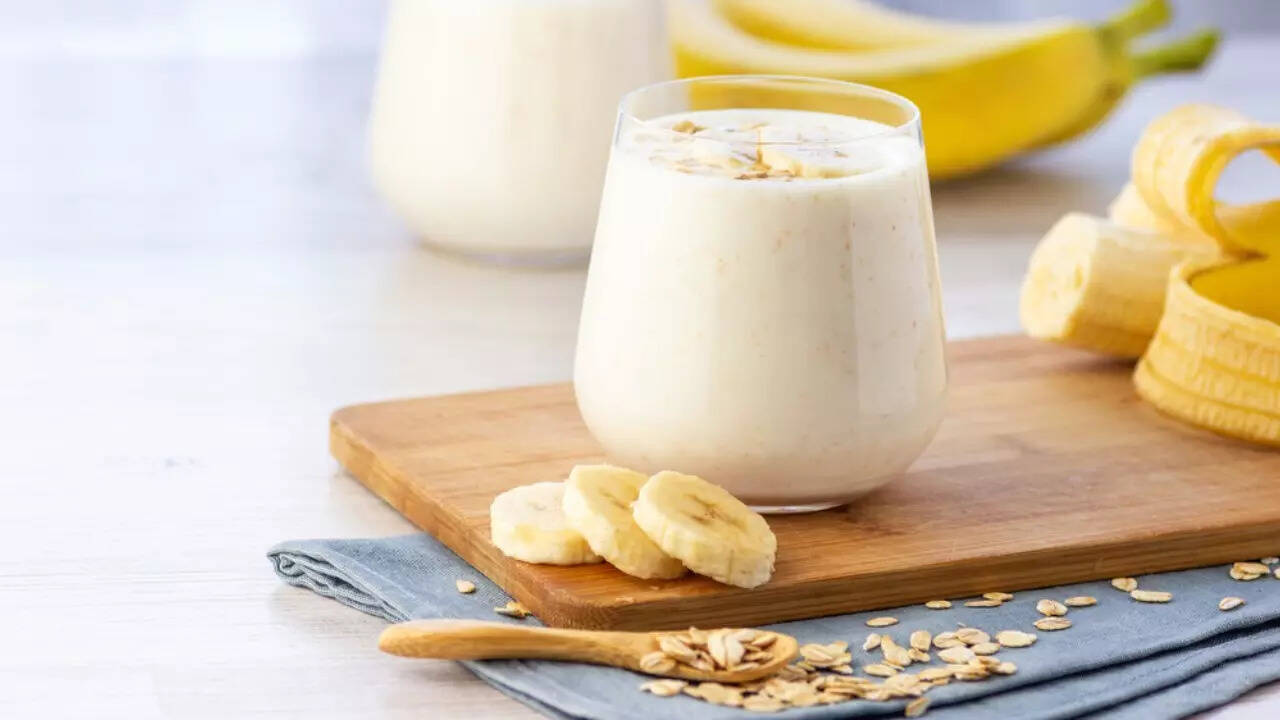
The best time to eat a banana depends on individual preferences and health goals, but generally, they can be enjoyed at any time of the day. Morning or evening are both good options, with some potential benefits associated with each.
If consumed in the morning:
Energy boost: Bananas are a good source of carbohydrates, potassium, and fiber, providing sustained energy for the day.Improved digestion: The fiber in bananas can aid digestion and promote regular bowel movements.Pre-workout snack: Bananas can be a great source of quick energy before a workout.When consumed in the evening/at night:Potential sleep aid: Bananas contain tryptophan, an amino acid that can be converted to serotonin and melatonin, which are involved in regulating sleep.Muscle relaxation: Potassium and magnesium in bananas can help relax muscles.May aid digestion: Some find that eating bananas before a meal can help with digestion.Eating a banana every morning is a simple, affordable, and uplifting habit. It offers energy, gut health, mood support, heart-helping potassium, immunity-building antioxidants, and workout recovery, all wrapped in a yellow peel. However, as the saying goes, “too much is never better,” moderation is always the key to good health. Be mindful of your overall diet, pair it wisely, and be cautious about any health conditions you may have.So tomorrow morning, when you open that fridge door and spot your golden-curved friend, know that you’re not just grabbing breakfast—you’re peeling open a little bundle of daily goodness.Disclaimer: This article is for informational purposes only and is not a substitute for professional medical advice, diagnosis, or treatment. Always seek the advice of your physician or qualified health provider with any questions you may have about your diet, health, or a medical condition.
[ad_2]
Source link
